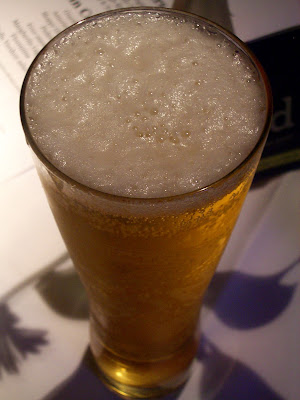 |
| Image: Maria Keays |
Glasgow-based R-Biopharm Rhône are working with brewers and test labs across the country to test cereals for mycotoxins before they are used to produce beer and to test the final products themselves.
The issue was the talk of bars around Europe after researchers analysed microscopic fungi in 154 brands of beer and found that anyone drinking more than two pints a day could be putting themselves at risk.
One of the most abundant toxins, called HT-2, appeared in 9 percent of the samples. There is European Union legislation pending for T-2 and HT-2 toxins in oats due to the potential hazards and the fact it is an ingredient in many everyday foods. R-Biopharm Rhône can provide a range of test formats to detect these toxins depending on testing requirements, including immunoaffinity columns, ELISAs and lateral flow devices.
The new 'lateral flow' test will reveal the presence of minute quantities of T-2 and HT-2 - mycotoxins produced by mould which develops on cereals in the field, especially when it is wet and cold during flowering.
Mycotoxins are produced by moulds and can have an adverse impact on the human body and animals. T-2 and HT-2 are already known to cause high economic losses in cattle, sheep and goats.
The EU has for some years now been considering the safe levels of T-2 and HT-2 which should be allowed in foodstuffs for human consumption and it is expected that legislation will follow a final decision.
The beer researchers, from the University of Valencia, said that the levels of mycotoxins were not enough to affect the average beer drinker, but someone consuming in excess of a litre a day could potentially be affected.
Product Manager, Claire Milligan, said: "The kits are designed to be easy to use and to deliver a clear result. We see it being of significant use to people involved in the processing of cereals, and also beer makers."
 |
| Image: Iqbal Osman |
R-Biopharm Rhône also uses immunoaffinity columns to screen for and clean up residues of toxins, with standards well in excess of EU requirements and detection in parts per billion. It is increasingly recognised as a market leader in mycotoxin detection.
The company, based in the West of Scotland Science Park, is one of Scotland's most successful exporters of diagnostic test kits, selling more than 75 percent of its output to major international names outside the UK.
It has been at the forefront of food safety in the UK in recent years, particularly during the horsemeat scandal of 2012 and more recently in scares involving cheap fish being passed off as prime quality and the dangers of potentially fatal nuts being substituted for expensive spices.
Visit the R-Biopharm Rhône website HERE.
The Global Miller
This blog is maintained by The Global Miller staff and is supported by the magazine GFMT
which is published by Perendale Publishers Limited.
For additional daily news from milling around the world: global-milling.com


No comments:
Post a Comment